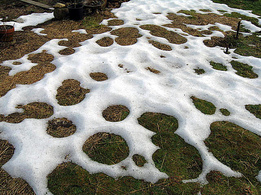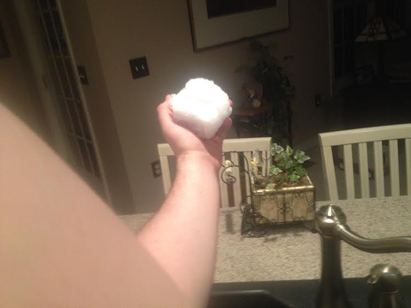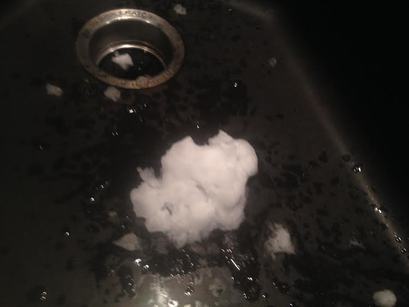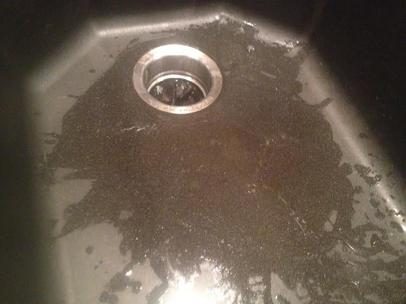By: Chase McDougalberg
 tmisaspencer.edublogs.org
tmisaspencer.edublogs.org With all the snow we have seen this winter, it's hard to believe it will ever go away. The fact is that it's going to have to disappear at some point as it always does somehow. So where does the snow go when it goes rogue? Researchers and scientists have been asking and have been asked this question for more than two decades now and they still can't even guess what happens to it in the end. Since not a single person has any idea of what's going on, I figured I would do some investigating myself.
I decided to go to a scientific lab where I could find someone who could point me in the right direction of at least a theory of this phenomenon, so what better than a lab at a local college? Not only will I get my story, but learn something too? Not a chance. I spoke to one of the professors about what he thought, and I got zip. I decided to not mention his name because I just didn't want him to look bad. He started saying words like condensation, 'warmer temperatures' and other scientific words so I said listen, keep it simple, I'm not an expert. The way he explained just didn't seem right so that idea was out of the question.
Some locals in the area had some ideas of where the snow goes. "I'm pretty sure that when it's warm enough, the snow would melt and turn into water", Emily Hammerschmidt of Scranton says. "It'll eventually go into the drainage system and go back into the river, right?" She had more to say, but I didn't hear it over my laughing. I also asked Eric Peterson of Olyphant, he said the same thing. "When it gets warm out, the snow will finally melt. I can't wait man. Hey Chase, you're awesome man. You help us out with your investigations in ways you don't even know." I was very thankful to the pedestrian and went on to my next part of the investigation.
I took some investigative pictures of what happens over time to snow that I put in my very own sink. So I got a handful of snow.
Some locals in the area had some ideas of where the snow goes. "I'm pretty sure that when it's warm enough, the snow would melt and turn into water", Emily Hammerschmidt of Scranton says. "It'll eventually go into the drainage system and go back into the river, right?" She had more to say, but I didn't hear it over my laughing. I also asked Eric Peterson of Olyphant, he said the same thing. "When it gets warm out, the snow will finally melt. I can't wait man. Hey Chase, you're awesome man. You help us out with your investigations in ways you don't even know." I was very thankful to the pedestrian and went on to my next part of the investigation.
I took some investigative pictures of what happens over time to snow that I put in my very own sink. So I got a handful of snow.
And put it into my sink.
After a few hours, I got this result.
So my investigation ended up exactly how I predicted. Science prevails how we come up with a hypothesis and end with a solid answer, and that answer in this case is no answer. I guess we all learned a lesson again today that science can sometimes mean failure too. I guess science isn't always what it's been proven to be. With this investigative report, I'm Chase McDougalburg.
By: Chase McDougalberg
By: Chase McDougalberg




 RSS Feed
RSS Feed
